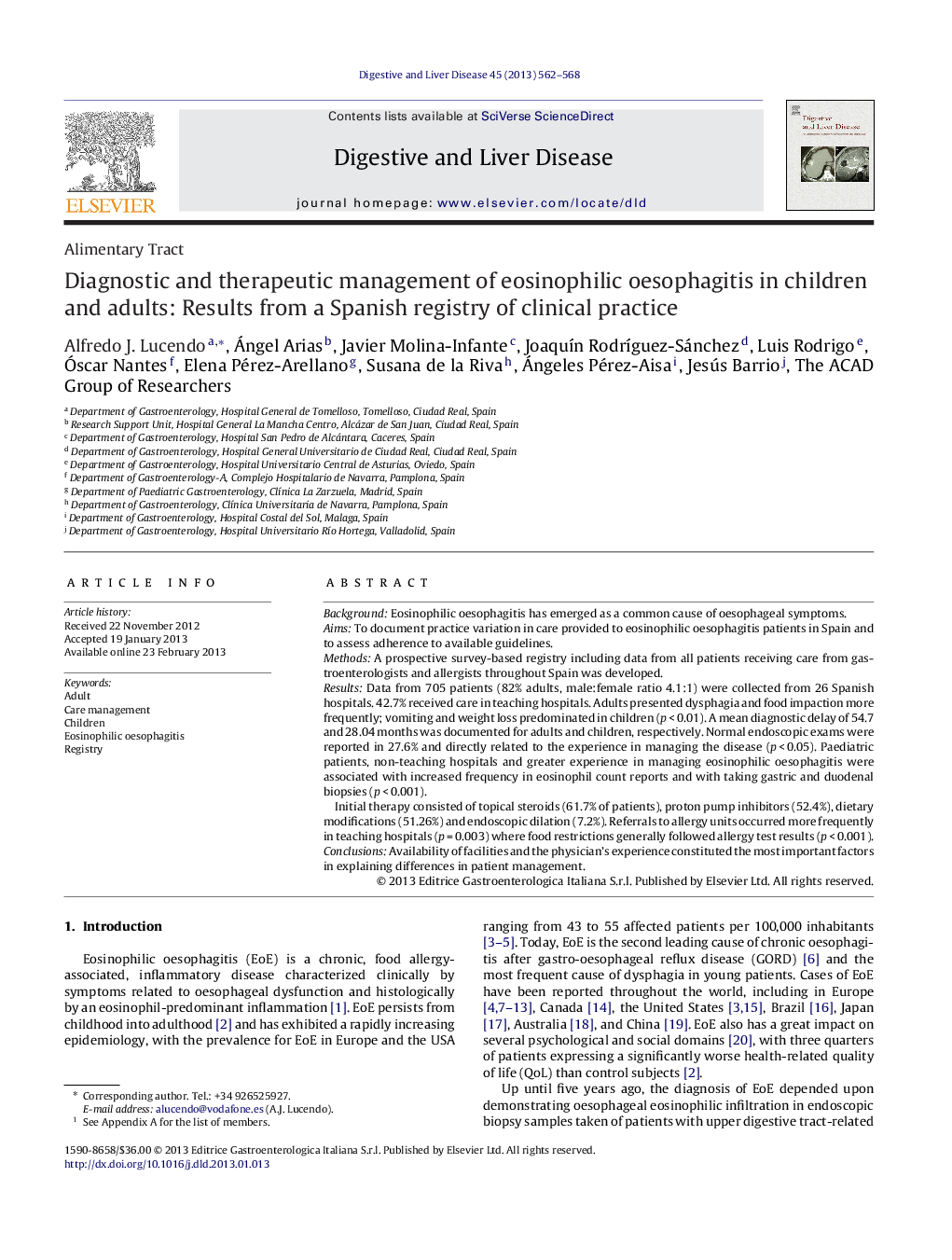| Article ID | Journal | Published Year | Pages | File Type |
|---|---|---|---|---|
| 3261984 | Digestive and Liver Disease | 2013 | 7 Pages |
BackgroundEosinophilic oesophagitis has emerged as a common cause of oesophageal symptoms.AimsTo document practice variation in care provided to eosinophilic oesophagitis patients in Spain and to assess adherence to available guidelines.MethodsA prospective survey-based registry including data from all patients receiving care from gastroenterologists and allergists throughout Spain was developed.ResultsData from 705 patients (82% adults, male:female ratio 4.1:1) were collected from 26 Spanish hospitals. 42.7% received care in teaching hospitals. Adults presented dysphagia and food impaction more frequently; vomiting and weight loss predominated in children (p < 0.01). A mean diagnostic delay of 54.7 and 28.04 months was documented for adults and children, respectively. Normal endoscopic exams were reported in 27.6% and directly related to the experience in managing the disease (p < 0.05). Paediatric patients, non-teaching hospitals and greater experience in managing eosinophilic oesophagitis were associated with increased frequency in eosinophil count reports and with taking gastric and duodenal biopsies (p < 0.001).Initial therapy consisted of topical steroids (61.7% of patients), proton pump inhibitors (52.4%), dietary modifications (51.26%) and endoscopic dilation (7.2%). Referrals to allergy units occurred more frequently in teaching hospitals (p = 0.003) where food restrictions generally followed allergy test results (p < 0.001).ConclusionsAvailability of facilities and the physician's experience constituted the most important factors in explaining differences in patient management.
